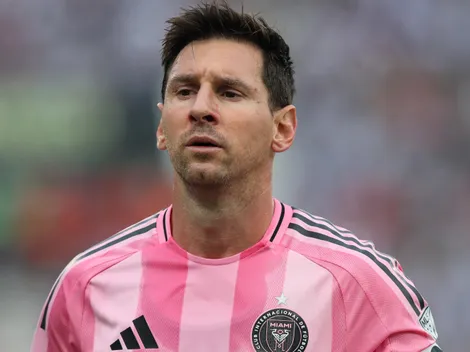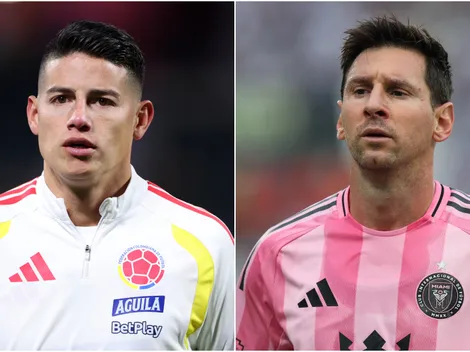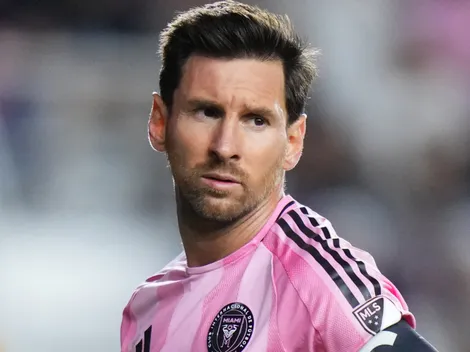Álvaro Fernández (35) came to MLS in the middle of the 2010 season after a rollercoaster summer which saw him selected and play for Uruguay in the World Cup in South Africa. Uruguay would finish fourth in the tournament, the country’s best finish since the 1970 World Cup, and he signed to the unlikely destination of Seattle, Washington and MLS to continue his career.
Álvaro Fernández was signed as a designated player, and by his own admission, he had no real idea what the term meant. During his two stints in MLS, Fernández saw firsthand the potential of the sport in the United States and the bright future MLS was laying out for itself.
Now back home in Uruguay and playing for Plaza Colonia at the tail end of a well-traveled career, Flaco looks back at MLS as a time of immense personal growth and sees the league becoming a league of choice for younger international players as a springboard to Europe.
“I still follow the Sounders”

Alvaro Fernandez #15 of the Seattle Sounders celebrates after scoring during a match against the Kansas City Wizards at Community America Ballpark in Kansas City, (Getty)
Bolavip: Well Álvaro thanks for sitting down with us, our first question is, what became of El Flaco Álvaro Fernández since his time in Seattle and Chicago in MLS?
Álvaro Fernández: Well since my time in MLS, I am currently playing for Plaza Colonia here in Uruguay. A club that allows me to stay close to home, about 40 minutes from the training ground, so I am really happy. Enjoying the last years of my career and seeing how much farther I can go.
B: Do you have any idea how much longer you will play? Or is it a day-by-day basis?
AF: For now, I feel quite good, I have not had any major injuries during my career, physically I feel fine so for now I plan to continue playing until December and then see if I still feel like playing past that.
B: Álvaro do you still follow MLS? Today the league has much more exposure from when you played back in 2010, do you still catch games?
AF: Yes, of course I still follow the league, I follow the Sounders a lot, even though I played in Chicago, I follow the Sounders since it’s the team I most played for and had the luck of winning championships. In 2016 I got the chance to play for the Sounders again and I have a lot of friends that are still in the squad like Nico Lodeiro and Freddy Montero. So, I am always aware of what is going on with the team.
B: How do you view the return of Freddy Montero to the Seattle? The prodigal son returns in a way.
AF: Yes, you’re right in a way. I remember telling him in 2016 when (Montero) was in Vancouver, that it would have been great if he was with us that season, (Seattle) is his home, where he shined as a player, and won a lot of things with the club. Am curious to see how Lodeiro and Montero match up on the field.
MLS Provided a piece of mind

Alvaro Fernandez of Uruguay during the 2010 FIFA World Cup South Africa (Getty)
B: How did playing in MLS come about? You just finished being a semifinalist in the World Cup with Uruguay, the media in Montevideo said you were going to Washington, thinking it was DC United, how did the deal with the Sounders happen?
AF: Funny thing is I really didn’t have much of an idea, I was just coming back from the World Cup and my mind was on that. To be honest what really motivated me to sign with the Sounders was the contract the team offered in terms of years on the deal. It provided me a peace of mind not only economically but moving my family as well. Then researching the club before I left, I thought it was the right place to continue my career.
B: Your coach was Sigi Schmid, how was it like to have him as a coach?
AF: I have the fondest memories of Sigi! Even though we used to argue a lot, because he would sub me out of games often. I used to get mad, but one day he pulled me aside and told me, “If I take you out it’s because your level is dropping off or you’re not providing me with what I need. No head coach subs a player out that’s playing good.” I learned a lot from him, and I was very saddened to hear of his passing. Sigi was a coach that left a mark in me and taught me a lot and I have the best memories of Sigi.
B: How was Sigi with the group? How was his interaction with the players?
AF: Sigi had two sides to him, during the week he was a very easy-going person, we used to joke with Sigi, but come game day and post-game, if we played badly or lost, the post-game speech was brutal! Sigi wouldn’t hold back, and at times as players we’d get taken a bit back, but the players understood what his role as a coach was and he was an excellent coach.
B: You had a bit of a playing time “war” with Steve Zakuani, you guys would rotate often on the left, how was that like during the week, that competition week in and week out?
AF: Yeah, I remember we would rotate, Steve would play and then I would play. When I first arrived, I was happy to see the high level the players had. Sometimes I’d be on the right and Steve on the left, in those years there was also Sanna Nyassi, he also played very well. It wasn’t easy to crack that starting eleven, and unfortunately when I started to find my groove and had that really good 2011 season, it sort of happened as a result of the devastating injury Steve (Zakuani) suffered in Colorado. I kept my spot on the team because of that, but that aside, we all got along quite well, it was a great group.
“I didn’t want to go to Chicago”

Alvaro Fernandez #4 of the Chicago Fire (Getty)
B: Was it strange to get traded to Chicago? You being from South America and falling victim to an American sports tradition of being traded from one day to the next?
AF: To be honest it really hurt a lot, and when I returned in 2016, I said that to upper management. It really hurt me to leave Seattle at the time, how it all came about. I had a really good 2011 and started out well in 2012, then I get injured and a few weeks later I come back score a few goals and started finding my rhythm, then three days before an Open Cup final I get traded… It hurt a lot and I did not want to leave. In a way that contributed to my huge dip in form in Chicago. I simply did not want to leave Seattle. In the United States I was only interested in playing for Seattle. In a way I always wanted to come back after that trade and well, thankfully, I was able to play again for the club.
B: Is it hard to carry the backpack of being a DP in MLS?
AF: Well, I remember being one of the first Uruguayans to go the MLS… I was a bit unconscious of the whole thing, I remember hearing the phrase “DP” and had no clue what it meant. Until one day they told me that I was a franchise player and it’s a given that when one goes abroad, and those things are attached to the player coming in the expectations are high… Any player that is imported to a league and takes the spot of a local talent has to be better than those players, it’s an unwritten law.
B: You have played in various leagues before and after MLS, in the Middle East, Argentina, Chile, and now in Uruguay. What did you see in MLS that these leagues can learn a bit from MLS or vice versa?
AF: Well, I was surprised, well really not surprised by how organized MLS is. When you think about the United States you know you are going to an organized country. The MLS had strict guidelines which made things easier, a game starts at 4PM it starts at 4PM, here in South America a game has a certain kick off time and it might start 15 minutes later. The training fields were top class as well as the hotels we had to stay in. It was a top league in that regards. And honestly, I don’t think the MLS has anything left to learn from South America, the fans are just as passionate. I think it’s a league that will continue to grow.
“Boca and River are selling players to MLS and that was unheard of a few years ago”

Alvaro Fernandez playing for Plaza Colonia in Uruguay (FocoUY)
B: You said something interesting about South American soccer, is South American soccer behind the times? Today European clubs have set up academies in South America and players are leaving at younger ages not even playing for their local clubs.
AF: I think economically it’s all a factor, here we need to sell to survive, if you look across all of South America even the big clubs need to sell players, and big clubs have a hard time keeping a team together. Boca and River are selling players to the MLS and that was unheard of a few years ago. You have players who won Copa Libertadores that have moved to MLS and that was simply not heard of.
B: Of the Uruguayan’s that are in the MLS, what do you think about Diego Rossi’s future?
AF: Diego has had a huge impact since going to MLS, he is a complete player, I have no doubts he will be the next big signing to go abroad. He has the typical traits of a Uruguayan player and great quality.
B: How was it seen within the Uruguayan national team to go to MLS?
AF: Well at first the boys used to joke about my vacation time! Three months that’s awesome! (laughs) They would say you can come home for the Summer. (In Uruguay the summer months are between November – February). You’re in the best league because of the vacation time! But they would always ask about the level how was it like to play in a such a big country.
B: You came to MLS in a time when established South American players would come to the league are you shocked to see that players who are in that U-23 range from Uruguay, Argentina, even Brazil are going to MLS and view it as a springboard to Europe?
AF: It’s incredible and there is no denying MLS is a springboard to Europe nowadays. Today MLS is seen all over the world, in Uruguay if you used to get 5 games it was a lot, today you can view the whole season from start to finish. The player sees the stadiums, fans, and the cities and as a player it’s very tempting. It’s a great destination to move up the ladder.
B: That last year with the Sounders you were able to win MLS Cup was it a great way to finish your MLS career? Or would you have liked it to go on a bit longer?
AF: Well, really, I knew I was going back to Seattle for 1 season. The reality was economically it was a one-year deal through and through. I went back not for the money but rather a chance to go back to a team I really have close to my heart and winning the cup was a great way to close the circle.





